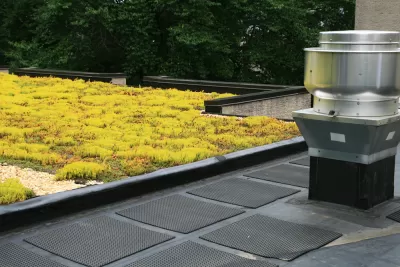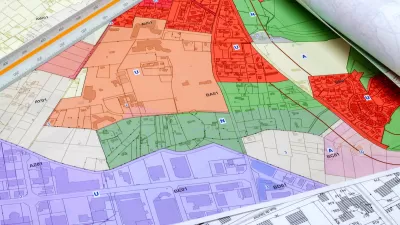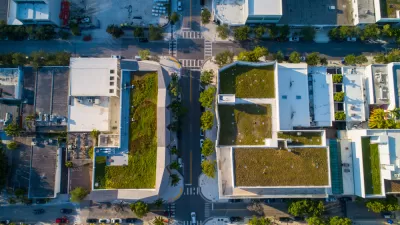Localities in Canada's Durham Region are implementing green building regulations to promote sustainable development and reduce resource use.

Officials in Southern Ontario's Durham Region are implementing green building standards into their development application and review processes, writes Jennifer O'Meara. The rules are designed to encourage developments that "reduce greenhouse gas emissions, build infrastructure that is resilient to future climate change and create a healthier environment for residents, according to a statement from the municipality."
Supporters say the regulations will reduce energy and water use, raise property values, and create jobs. But O'Meara writes that builders have expressed concern that the requirements will raise the cost of production and, consequently, the cost of housing for home buyers.
According to Cameron Richardson, Ajax supervisor of environmental sustainability and climate change, buildings in the region "are second only to transportation as the largest emitter of greenhouse gases, so a municipal green standard for new development and redevelopment within the town would be vital in addressing the climate change emergency and achieving the targets that have been endorsed."
Green building standards are proliferating in both the U.S. and Canada as cities strive to meet greenhouse gas reduction goals and investors demand sustainability as a key component of new developments. Meanwhile, housing advocates caution that eco-friendly development can also lead to "eco-gentrification:" the creation of green enclaves that ignores the needs of low-income populations and concentrates the benefits of green building in wealthy areas.
FULL STORY: Green building standards sprouting up in Durham

Maui's Vacation Rental Debate Turns Ugly
Verbal attacks, misinformation campaigns and fistfights plague a high-stakes debate to convert thousands of vacation rentals into long-term housing.

Planetizen Federal Action Tracker
A weekly monitor of how Trump’s orders and actions are impacting planners and planning in America.

In Urban Planning, AI Prompting Could be the New Design Thinking
Creativity has long been key to great urban design. What if we see AI as our new creative partner?

Florida Seniors Face Rising Homelessness Risk
High housing costs are pushing more seniors, many of them on a fixed income, into homelessness.

Massachusetts Budget Helps Close MBTA Budget Gap
The budget signed by Gov. Maura Healey includes $470 million in MBTA funding for the next fiscal year.

Milwaukee Launches Vision Zero Plan
Seven years after the city signed its Complete Streets Policy, the city is doubling down on its efforts to eliminate traffic deaths.
Urban Design for Planners 1: Software Tools
This six-course series explores essential urban design concepts using open source software and equips planners with the tools they need to participate fully in the urban design process.
Planning for Universal Design
Learn the tools for implementing Universal Design in planning regulations.
Gallatin County Department of Planning & Community Development
Heyer Gruel & Associates PA
JM Goldson LLC
City of Camden Redevelopment Agency
City of Astoria
Transportation Research & Education Center (TREC) at Portland State University
Jefferson Parish Government
Camden Redevelopment Agency
City of Claremont





























